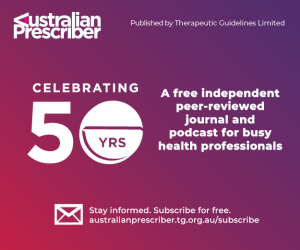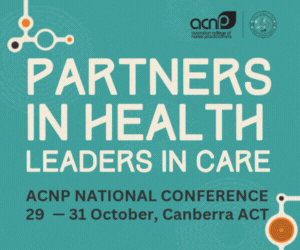Research shows people with intellectual disability (ID) and/or autism spectrum disorder (ASD) are at higher risk of developing a range of chronic and complex health conditions. They are also less likely to receive quality inclusive care across settings such as hospitals and primary care.
To improve access to healthcare and outcomes for people with ID and/or ASD, a national project has developed a free online CPD program to build registered nurses’ capacity to address the healthcare needs of this cohort in mainstream health settings.
Nurses who undertake the Every Nurse’s Business training, which includes quizzes, videos and online learning sessions spread over three training levels, will have the opportunity to improve their ability to care for people with ID and/or ASD, and claim CPD hours along the way.
Funded by the National Disability Insurance Agency Information Linkages and Capacity Building Program, the learning resources were co-designed by nurses and people with ID and/or ASD and their carers.
The project is aiming to improve the skills of more than 300,000 nurses nationwide.
Led by Professor Andrew Cashin, Professor of Autism and Intellectual Disability at Southern Cross University (SCU), it was activated by research showing the lack of consistent content specific to caring for people with ID and/or ASD within current undergraduate nursing curriculums.
People with ID and/or ASD experience disproportionate levels of chronic and complex physical and mental illnesses across the lifespan, Professor Cashin explains. The cohort also experiences greater hospitalisation, readmission and complications following hospitalisation, and equally, is less likely to receive primary care intervention to prevent health issues.
As people with ID and/or ASD regularly present in mainstream healthcare settings, Professor Cashin says it is vital nurses feel confident and competent when providing care.
Significantly, a national survey conducted at the start of the project to gauge the confidence levels, strengths and perceived challenges among nurses when it comes to caring for people with ID and/or ASD found a lack of education and clinical experience on how to adjust practice when working with the cohort.
Further, research found that when nurses are not sure how to look after people with ID and/or ASD, the burden typically falls on already stretched carers.
The findings helped shape the free training program, which is now aiming to equip nurses with the skills they need to deliver tailored and improved care to people with ID and/or ASD.
Launched in late July, the learning site’s different training levels cover six domains (modules) of content including: care imperatives; communication to individuals with ASD and/or ID; understanding communication from individuals with ASD and/or ID; environments of care; supporting positive behaviour; making things go well; and introduction to the NDIS.
The learning levels comprise:
- Foundational: A depository of foundational learning content (tiles, explainers, and videos) under the six domains. RNs can take part in a short quiz to claim hours for this level of CPD.
- Intermediate: This content involves blocks of learning and a variety of information, videos, vignettes, interviews, activities, and further reading under the six domains. Following completion of the six intermediate modules, nurses can take part in a short quiz to claim hours for this level of CPD.
- Advanced: The advanced level will help RNs build upon their learnings in foundational and intermediate. They will have opportunities to take part in synchronous online learning sessions with experts in the area, as well as activities, videos, information, and further readings. They will also have an option to undertake an assessment and reflective essay, which will count towards CPD hours and requirements.
“The feedback so far on the resources we’ve created is that they’re really filling that learning gap. They’re accessible and nurses are enjoying the process,” Professor Cashin says.
“Hopefully, the more people we can get to use it, the more we’ll be able to fill that gap and improve the patient experience for people with intellectual disability and/or autism in mainstream health services.”
The $1.2 million national project was developed with a broad range of consortia members representing universities and peak professional nursing bodies. They include the Australian Nursing and Midwifery Federation (ANMF), the Australian College of Critical Care Nurses (ACCN), the Professional Association of Nurses in Developmental Disability Australia (PANDDA), the College of Emergency Nursing Australasia (CENA) and the Australian Primary Health Care Nurses Association (APNA).
The learning site is free to access for RN members of the ANMF, and other nursing affiliates, who will promote and distribute learning material via their platforms.
Professor Cashin believes the learning site can help kick-start conversations and make a real difference to practice and improved care for people with ID and/or ASD across mainstream health settings.
“I think we can build awareness of what’s really been a hidden issue, that people with ID and/or ASD as a group have some of the worst health outcomes of any Australian citizens,” he says.
“The impact will be that nurses gain not only an understanding of why practice needs to be adjusted, but also some practical ways about how to effectively adjust practice.”
Professor Cashin encourages all registered nurses to access the learning site and improve their knowledge in this important space.
“At the bottom level, it’s going to make a big difference to nurses and people with ID and/or ASD because if there’s impaired communication, and people are struggling to understand what’s happening, then that is a two way process and means impairment is shared by everyone,” he says.
“Systems are going to run more efficiently if people understand what’s happening and what’s expected of them, and their anxiety levels will be lower. It’s going to improve the nursing experience of getting the job done and is going to make a huge difference to people with ID and/or ASD and their carers.”
To access the ‘Every Nurse’s Business’ Learning Site visit https://learning.pandda.net/









2 Responses
Is this available to Enrolled Nurses??
Unfortunately it’s for enrolled nurses only.